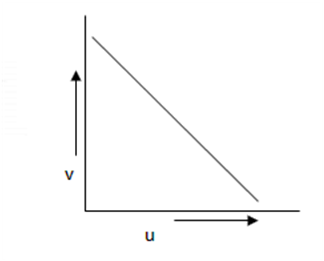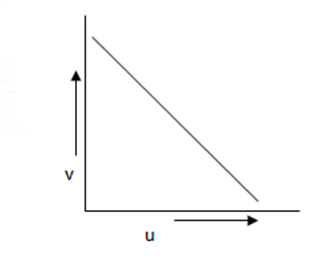 Multiple Choice Questions
Multiple Choice QuestionsA telescope has an objective lens of focal length 200 cm and an eye piece with focal length 2 cm. If this telescope is used to see a 50 meter tall building at a distance of 2 km, what is the height of the image of the building formed by the objective lens?
5 cm
10 cm
1 cm
2 cm
The apparent depth of water in cylindrical water tank of diameter 2R cm is reducing at the rate of x cm/minute when water is being drained out at a constant rate. The amount of water drained in c.c. per minute is ( n1 = refractive index of air, n2 = refractive index of water)
R2x
Assertion: Specific gravity of a fluid is a dimensionless quantity.
Reason: It is the ratio of density of fluid to the density of water.
If both assertion and reason are true and reason is the correct explanation of assertion
If both assertion and reason are true but reason is not the correct explanation of assertion
If assertion is true but reason is false
If both assertion and reason are false
Assertion: Diamond glitters brilliantly.
Reason: Diamond does not absorb sunlight.
If both assertion and reason are true and reason is the correct explanation of assertion
If both assertion and reason are true but reason is not the correct explanation of assertion
If assertion is true but reason is false
If both assertion and reason are false
Assertion: The resolving power of a telescope is more if the diameter of the objective lens is more.
Reason: Objective lens of large diameter collects more
light.
If both assertion and reason are true and reason is the correct explanation of assertion
If both assertion and reason are true but reason is not the correct explanation of assertion
If assertion is true but reason is false
If both assertion and reason are false
A.
If both assertion and reason are true and reason is the correct explanation of assertion
Resolving power of telescope =
Where D is the diameter of the objective lens
and λ is the wavelength of the light used.
With increase in D, resolving power of telescope increases. A telescope will have large gathering power if the diameter of the objective lens is large. Hence a bright image will be formed by the telescope.
An object is immersed in fluid. In order that the object becomes invisible, it should
behave as perfect reflector
absorb all light falling on it
have refractive index one
have refractive index exactly matching with that of the surrounding fluid
An endoscope is employed by a physician to view the internal parts of a body organ. It is based on the principle of
refraction
reflection
total internal reflection
dispersion
In an experiment to find the focal length of a concave mirror a graph is drawn between the magnitudes of u and v. The graph looks like




An astronaut is looking down on earth's surface from a space shuttle at an altitude of 400 km.
Assuming that the astronaut's pupil diameter is 5 mm and the wavelength of visible light is 500 nm, the astronaut will be able to resolve linear objects of the size about
0.5 m
5 m
50 m
500 m
Assertion: Owls can move freely during night.
Reason: They have large number of rods on their retina.
if both assertion and reason are true and the reason is the correct explanation of the assertion
if both assertion and reason are true and the reason is not the correct explanation of the assertion
if assertion is true but reason is false
if both assertion and reason are false statements
